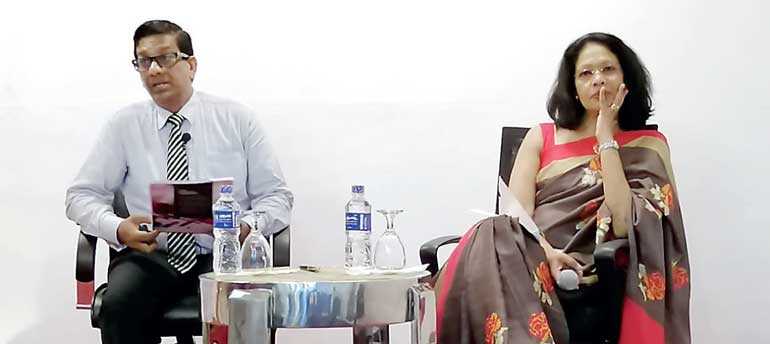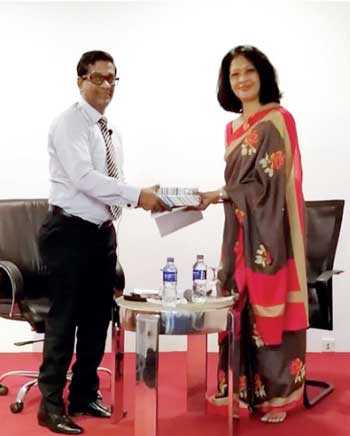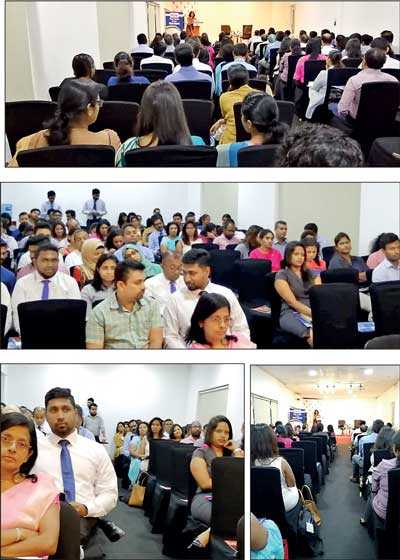Friday Feb 27, 2026
Friday Feb 27, 2026
Monday, 17 February 2020 00:33 - - {{hitsCtrl.values.hits}}

Colombo School of Business and Management (CSBM) www.csbm.edu.lk, the premier ‘Business School of the Nation’ recently held its pioneering signature event ‘Talk of Month’ by Dilani Alagaratnam, former President – Group HR, Legal, Sustainability and ERM for John Keells Holdings as the speaker on the topic ‘Keeping up with the future of work – are we ready?’. 
Previous speakers in this CSBM signature ‘Talk of the Month’ (TOM) series included Deepal Sooriyararchchi, General Daya Ratnayake, Bathiya and Santhush (BnS).
Talk of the Month was initiated by CSBM in August 2019 as a platform for prominent corporate personalities for mentoring and knowledge sharing the next generation of executives and management; following the success in CSBM’s signature brand event series, ‘Evening with a Corporate Leader EWCL’ with top corporate leaders Dhammika Perera, Ashok Pathirage, Otara Chandiram, Ashroff Omar, and Dilith Jayaweera, to name a few.
Dilani Alagaratnam shared her knowledge, insights and experience on the topic ‘Keeping up with the future of work – are we ready?’; followed by an interactive Q & A session moderated by former Banker and Director – CSBM, Leonard Michael Perera in which the discussion points and learnings are set forth.
CSBM is a certificate awarding institution registered under the Tertiary and Vocational Education Commission of Sri Lanka (TVE) (Amendment) Act No. 50 of 1999. All our educational programmes are in compliance with the University Grants Commission’s (UGC) approved Sri Lanka Qualification Framework (SLQF). CSBM was established with the patronage of prominent corporate leaders and institutions in Sri Lanka intending to promote a novelty in higher education, professional, executive training, career development, research, business support and consultancy. 
CSBM has successfully built international partnerships with AIT Extension in Bangkok, University of Lincoln UK and INSEAD Singapore, a European commission registered research and innovation centre. The main objective of CSBM is to create a varied and inspiring learning environment in order to enhance the learners usual ways of doing business, thereby influencing them to explore new ways of thinking to face today’s global business challenges.
The faculty of CSBM comprise of highly qualified academics and professionals, senior corporate and business leaders, bankers, industry renowned marketers, world-class research professionals and members from distinguished professional bodies, high-ranking public servants and visiting faculty from our foreign partner universities and associate institutions. Thus, they create the best value added platform for teaching and learning. They offer a series of executive education, skill enhancement, work force training and continuous education programmes.